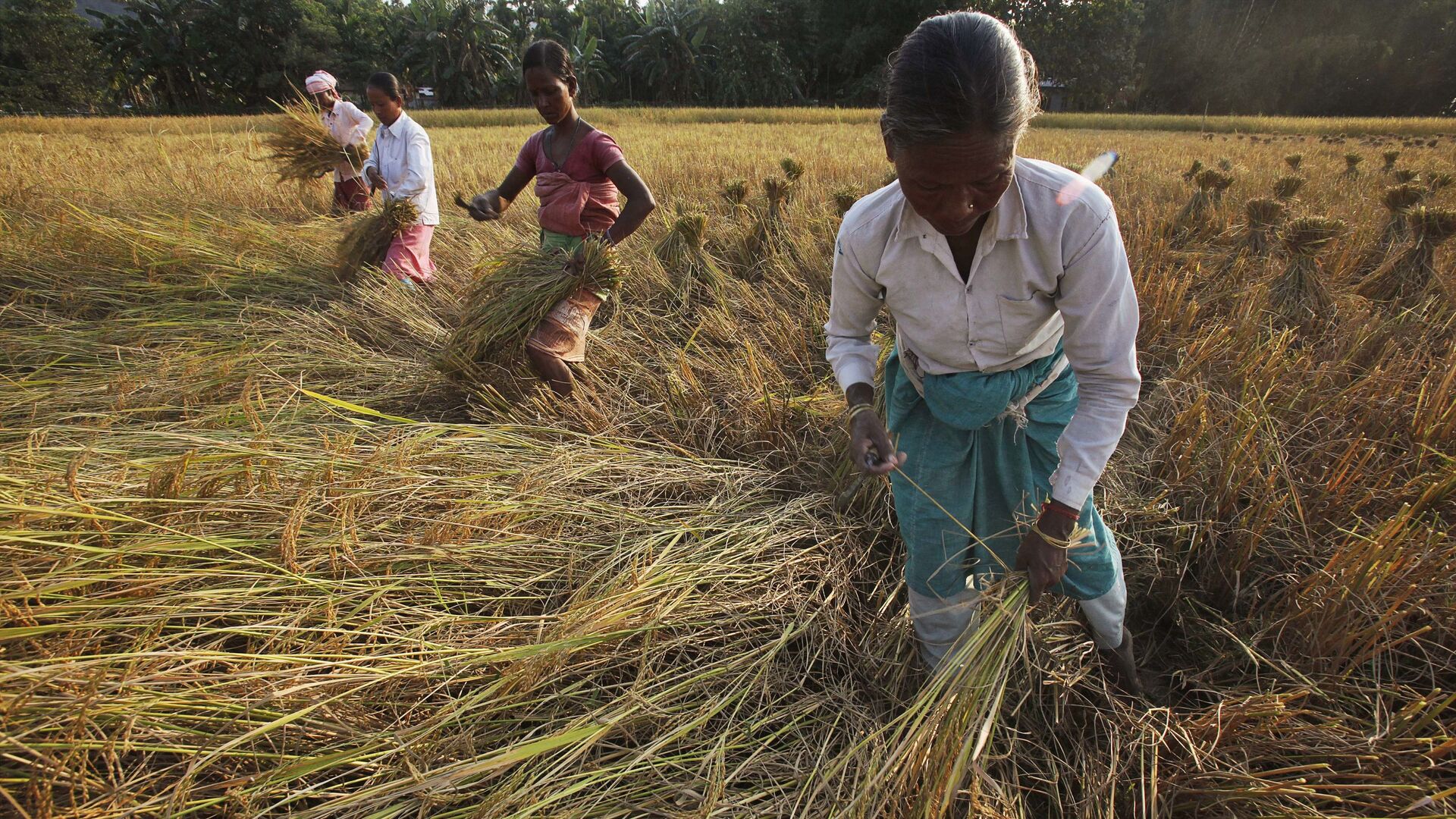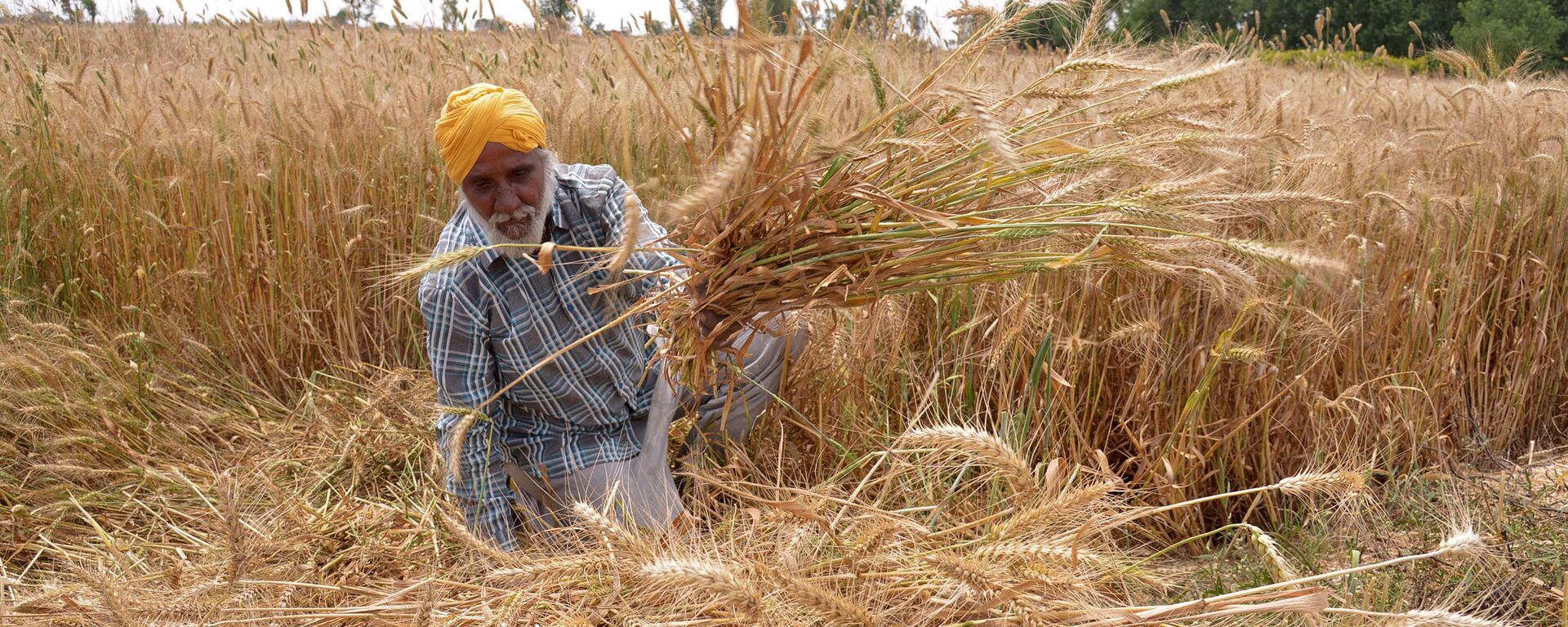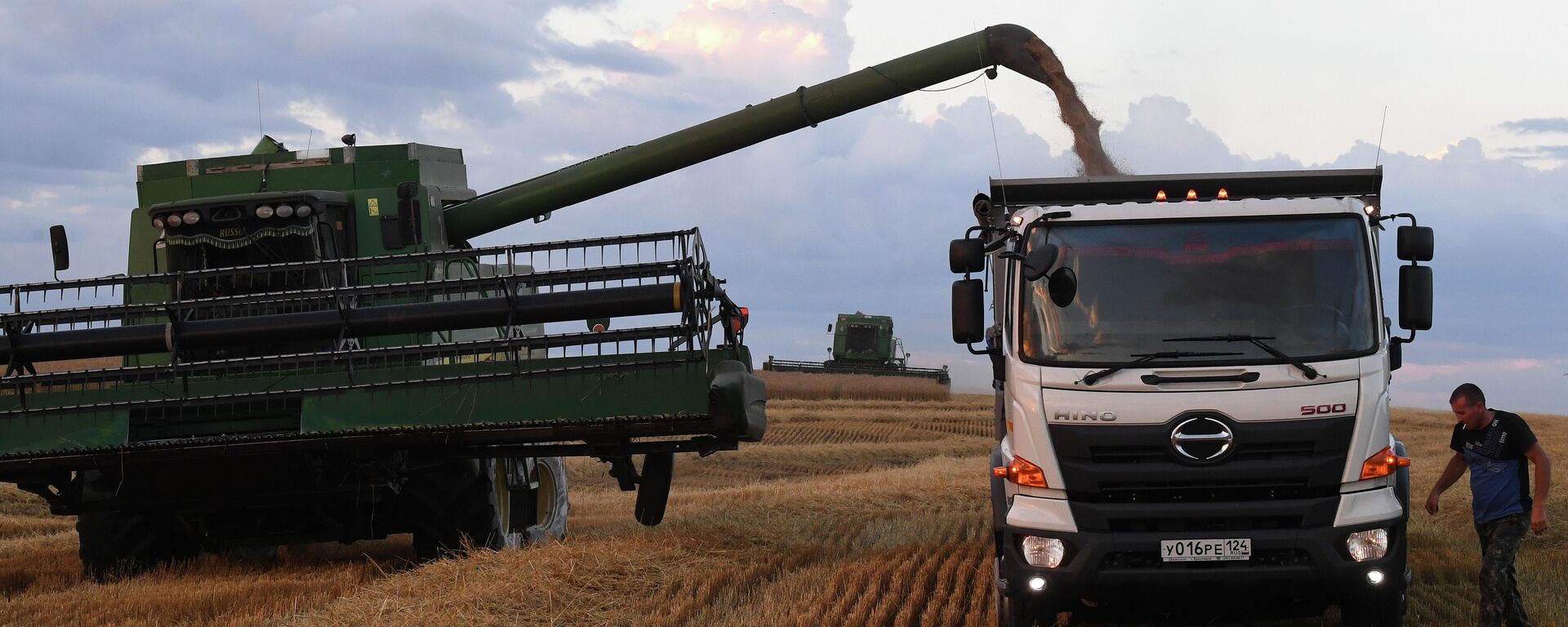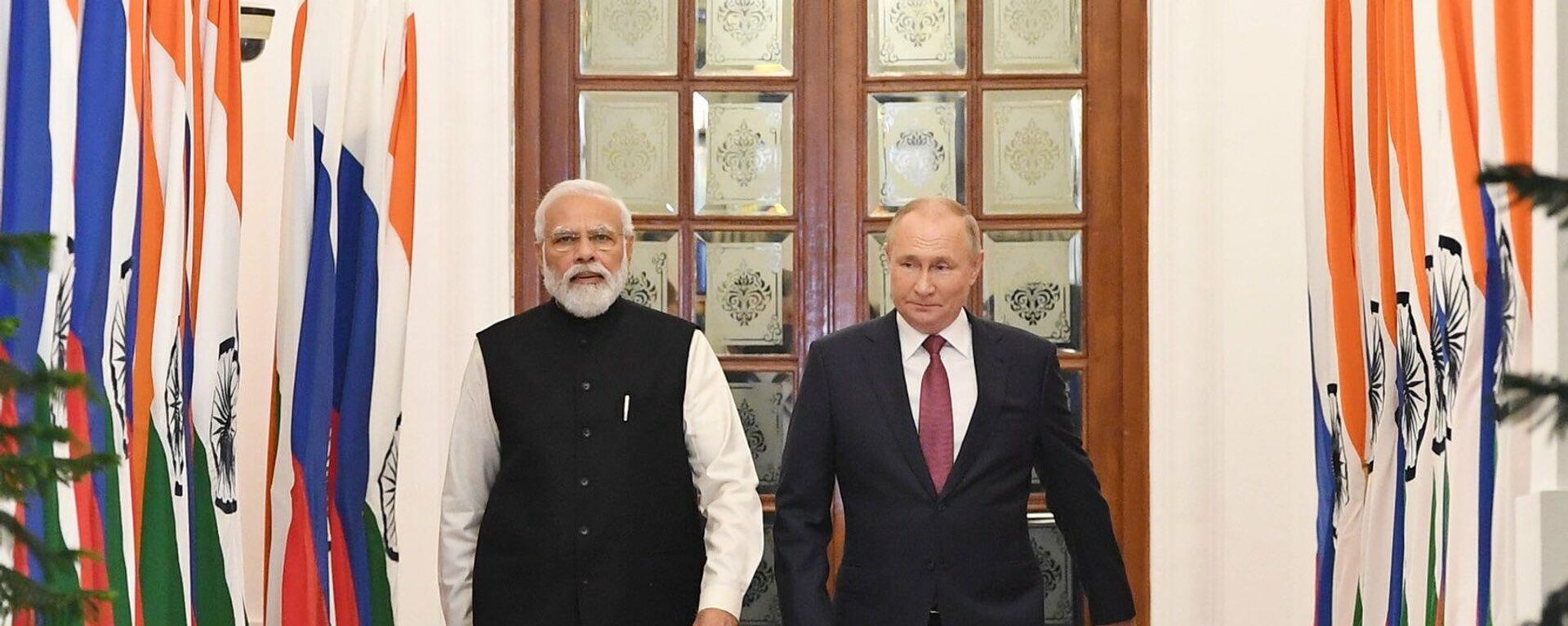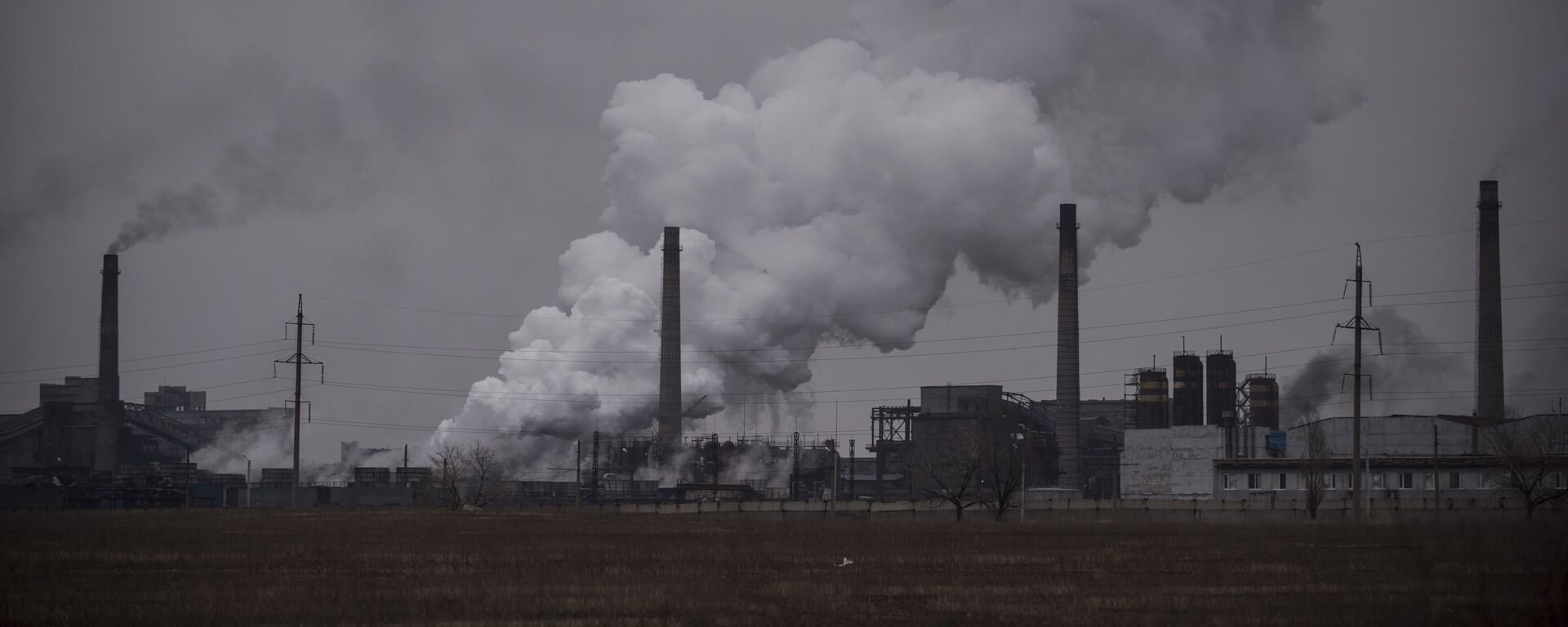https://sputnikglobe.com/20220426/earth-threatened-with-one-of-the-greatest-famines-in-history-amid-supply-chain-disruptions-report-1095081676.html
Earth Threatened With ‘One of the Greatest Famines in History’ Amid Supply Chain Disruptions: Report
Earth Threatened With ‘One of the Greatest Famines in History’ Amid Supply Chain Disruptions: Report
Sputnik International
Many countries are already facing galloping inflation and spiking food and fuel costs as the economic downturn sparked by Covid and unrestrained money printing... 26.04.2022, Sputnik International
2022-04-26T19:09+0000
2022-04-26T19:09+0000
2022-04-26T19:27+0000
famine
https://cdn1.img.sputnikglobe.com/img/07e5/07/07/1083329429_0:0:3099:1744_1920x0_80_0_0_5bcb8a2622ad236b2ac64e2a488486c3.jpg
The disruption of global supply chains aggravated by the situation in Ukraine has the potential to spark fertilizer shortages, problems with crop production and, ultimately, widespread hunger or even famine, policy experts have told Germany’s Compact Magazine.Matin Qaim, an economist and professor of food economics and rural development at the University of Bonn, echoed these fears, saying up to 100 million people may be driven to starvation by the current crisis.Compact noted that while the issue of Germany’s reliance on Russian energy, which business leaders have stressed “would literally collapse” German industry “in just a few months” if Russia instituted an embargo, has been discussed at length, that of food security “seems to be almost completely ignored by German politicians and the public.”Compact pointed out that major global fertilizer producers – “former Soviet potash combines from the Urals [in Russia] and from Belarus,” are “now subject to the Western embargo regime.”Meanwhile, the outlet said, “industrially-produced nitrogen fertilizers are not an effective alternative as gas prices are too high for them to be produced cheaply. Brazil fears drastic losses in its agricultural production as a result of this development and the situation in Africa is even worse. Due to climactic conditions, grain cultivation is not possible here across wide areas. This must be offset by imports, which are becoming increasingly unaffordable.”Food shortages are likely to give rise to political crises, the magazine stressed, recalling that “empty stomachs” was one of the factors that drove people across the Middle East into the streets during the so-called “Arab Spring” protests in 2010. Their anger was connected in large part to the rapid rise in food prices which followed the global financial crisis of 2007-2008.Russian officials have assured that they will continue to honour existing fertilizer and agricultural commodity supply contracts with countries which haven’t sanctioned Moscow, notwithstanding Western sanctions pressure. Countries of the Global South depend on Russian exports of fertilizers and agricultural goods for large percentages of their needs, with Russia accounting for 24 percent of Brazil’s fertilizers, 22 percent of Egypt’s wheat, and 24 percent of India’s sunflower oil in 2020, for example.The Ukrainian crisis, which continues to be exacerbated by billions of dollars in Western arms deliveries and Kiev’s waffling on previously agreed-upon Russian demands on the status of Crimea and the Donbass in peace talks, have led to concerns that Ukraine, which is also a major producer and exporter of fertilizers, wheat and sunflower oil, may not deliver as much of these items this year, causing shortages and further price increases. The planting season is already underway in the country, but many farmers are not tending to their fields, particularly in areas where fighting is taking place. Last week, Reuters reported that Ukraine's spring sowing area could drop by as much as 20 percent thanks to the conflict.
https://sputnikglobe.com/20220415/egypt-agrees-to-purchase-indian-wheat-as-ukrainian-conflict-threatens-food-security-1094779382.html
https://sputnikglobe.com/20220412/food-crisis-caused-by-ukrainian-conflict-may-cost-world-8-9bln---un-wfp-1094712117.html
https://sputnikglobe.com/20220420/here-is-how-india-continues-to-trade-with-russia-in-energy-and-more-despite-us-warnings-1094912185.html
https://sputnikglobe.com/20220408/live-updates-ukrainian-neo-nazis-plan-to-blow-up-chemical-depots-in-avdiivka---russian-mod-1094602937.html
Sputnik International
feedback@sputniknews.com
+74956456601
MIA „Rossiya Segodnya“
2022
News
en_EN
Sputnik International
feedback@sputniknews.com
+74956456601
MIA „Rossiya Segodnya“
Sputnik International
feedback@sputniknews.com
+74956456601
MIA „Rossiya Segodnya“
famine
Earth Threatened With ‘One of the Greatest Famines in History’ Amid Supply Chain Disruptions: Report
19:09 GMT 26.04.2022 (Updated: 19:27 GMT 26.04.2022) Many countries are already facing galloping inflation and spiking food and fuel costs as the economic downturn sparked by Covid and unrestrained money printing is exacerbated by the crisis in Ukraine. The World Bank warned Tuesday that it expects food prices to jump 22.9 percent in 2022, on top of the 31 percent increase observed in 2021.
The disruption of global supply chains aggravated by the situation in Ukraine has the potential to spark fertilizer shortages, problems with crop production and, ultimately, widespread hunger or even famine, policy experts have told Germany’s
Compact Magazine.
“In 2023 we will experience one of the greatest famines in human history,” Matthias Berninger, a former German state secretary for agriculture, told the outlet.
Matin Qaim, an economist and professor of food economics and rural development at the University of Bonn, echoed these fears, saying up to 100 million people may be driven to starvation by the current crisis.
Compact noted that while the issue of Germany’s reliance on Russian energy, which business leaders have stressed “would literally collapse” German industry “in just a few months” if Russia instituted an embargo, has been discussed at length, that of food security “seems to be almost completely ignored by German politicians and the public.”
Compact pointed out that major global fertilizer producers – “former Soviet potash combines from the Urals [in Russia] and from Belarus,” are “now subject to the
Western embargo regime.”
Meanwhile, the outlet said, “industrially-produced nitrogen fertilizers are not an effective alternative as gas prices are too high for them to be produced cheaply. Brazil fears drastic losses in its agricultural production as a result of this development and the situation in Africa is even worse. Due to climactic conditions, grain cultivation is not possible here across wide areas. This must be offset by imports, which are becoming increasingly unaffordable.”
Food shortages are likely to give rise to political crises, the magazine stressed, recalling that “empty stomachs” was one of the factors that drove people across the Middle East into the streets during the so-called “Arab Spring” protests in 2010. Their anger was connected in large part to the rapid rise in food prices which followed the global financial crisis of 2007-2008.
“It soon splintered into various terrorist and Islamist currents, plunging Libya and Syria into devastating wars that the West helped to instigate, and culminating in the completely destabilized world of today. This nightmare could now be repeated in exponential form,” Compact warned.
Russian officials have
assured that they will continue to honour existing fertilizer and agricultural commodity supply contracts with countries which haven’t sanctioned Moscow, notwithstanding Western sanctions pressure. Countries of the Global South depend on Russian exports of fertilizers and agricultural goods for large percentages of their needs, with Russia
accounting for 24 percent of Brazil’s fertilizers, 22 percent of Egypt’s wheat, and 24 percent of India’s sunflower oil in 2020, for example.
The Ukrainian crisis, which continues to be exacerbated by
billions of dollars in Western arms deliveries and
Kiev’s waffling on previously agreed-upon Russian demands on the status of Crimea and the Donbass in peace talks, have led to concerns that Ukraine, which is
also a major producer and exporter of fertilizers, wheat and sunflower oil, may not deliver as much of these items this year, causing shortages and further price increases. The planting season is already underway in the country, but many farmers are not tending to their fields, particularly in areas where fighting is taking place. Last week, Reuters reported that Ukraine's spring sowing area could drop by
as much as 20 percent thanks to the conflict.
